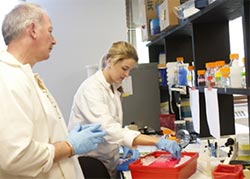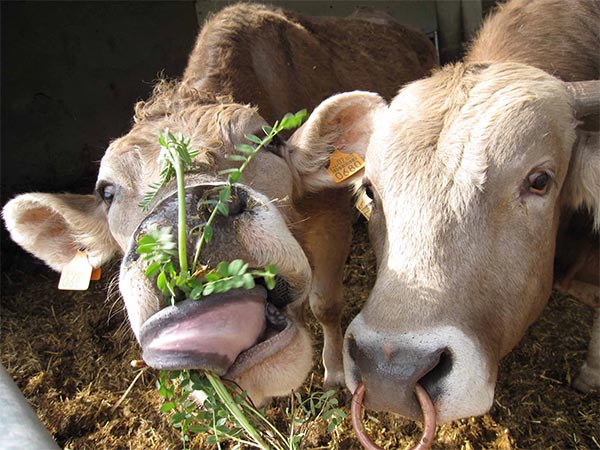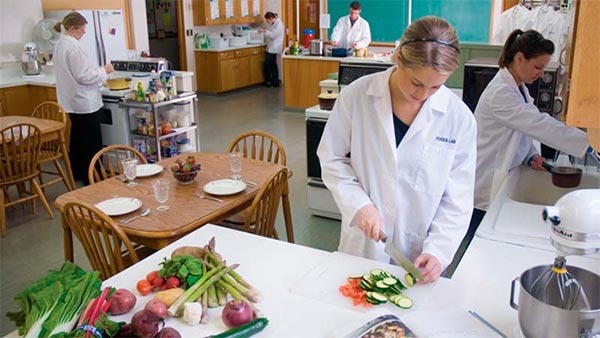Whether you are a health care practitioner who wants to offer healthy eating advice to your patients or are thinking about setting up a nutrition practice yourself, a BSc (Hons) designation for Nutritional Science gives you the education you need to obtain a job in private practice, community work, public health, or nutrition research.
Nutrition is covered from the farm to the dinner table when you set your sights for completing a nutritional course. The course provides the students with an opportunity to engage in collaborative research projects as well as hone skills in decision-making and critical thinking.
Graduates of a BSc (Hons) designation feel prepared to enter the nutrition field in such specific areas as:
- Research and development, using a nutrition education to work for one of a large number of companies, including testing labs, supplement distributors and manufacturers, and food suppliers and manufacturers.
- Nutritional educational jobs where the job holder teaches working professionals and the public at-large.
- Community-based setting where nutritionists concentrate on the subject of sustainable health.
You can garner more information about nutritional jobs by visiting cnelm.co.uk, a site that is represented by the school of Centre for Nutrition Education and Lifestyle Management. The Centre for Nutrition Education and Lifestyle Management is working with Middlesex University to provide undergraduate, post-graduate, coaching and short courses for anyone who is interested in advancing himself or herself in the nutritional area.
Graduates holding the BSc (Hons) designation for Nutritional Science can apply to postgraduate programmes, either at CNELM or to other universities to obtain a Masters or Doctorate degree. You also have the latitude to apply for a Postgraduate Diploma in Dietetics.
According to the Association in Nutrition, a career in nutrition requires a Bachelor of Science (BSc) degree in either nutrition or a closely associated bioscience. Advanced degrees in postgraduate study, or the MSc or PhD designation, will increase job opportunities. Many employers currently require nutritionists to register with the UK Voluntary Register of Nutritionists, which also requires that the registrant hold a BSc (hons) or an MSc in nutritional science.
If you are undecided about the exact career you want to pursue in the nutrition field, choose from the courses you know you will enjoy studying. Single subject courses in the field of public health nutrition often lead to jobs in healthcare, government or industry. Further study can also lead you to a career in sports nutrition, sports nutrition research or dietetics.
Some courses combine food science with nutrition, which permits the graduate to apply for a job in product development or food and technology. The study of nutrition can also be combined with the subject of animal sciences or agriculture, which can lead to jobs in the agricultural field or veterinary studies at a later date. The British Society for Animal Sciences can provide more information along these lines.
 Anyone who wants to gain entry to a degree program covering nutritional science needs to focus on science, chemistry or math, which are program prerequisites. Therefore, you need to prepare yourself in the aforementioned subjects if you are serious about earning a nutrition degree. Lab work is required too when taking college coursework, typically in the areas of food chemistry, food technology, biochemistry, food science, sport nutrition, microbiology, and clinical nutrition.
Anyone who wants to gain entry to a degree program covering nutritional science needs to focus on science, chemistry or math, which are program prerequisites. Therefore, you need to prepare yourself in the aforementioned subjects if you are serious about earning a nutrition degree. Lab work is required too when taking college coursework, typically in the areas of food chemistry, food technology, biochemistry, food science, sport nutrition, microbiology, and clinical nutrition.
Nutritionists do not just focus on human nutrition. They are concerned with animal nutrition as well. For instance, some nutritionists use their education to assist in nutrition programmes for livestock feed products or feeding programmes at a zoo. When you break down the competencies, nutritionists generally focus on the areas of:
- Animal nutrition
- Food nutrition
- Nutrition Science
- Public health nutrition
- Sport and exercise nutrition
Roles in Nutrition
Table of Contents
Animal Nutrition
An animal nutritionist applies his knowledge of anatomy, metabolism, physiology and nutrition to the biomechanics and functioning of various species or vertebrates in the animal kingdom. Nutritionists who have studied the nutritional needs of various animals often serve as consultants, industry specialists, researchers or teachers.
The Role of the Food Nutritionist
A food nutritionist usually works in the field of nutrition education or for the food manufacturing industry. Food nutritionists must be well-versed in the science, policy, and legislation of processed foods as well as ingredient listings. Their roles can vary as they may work in education, health promotions, customer service, marketing community development, or health improvement.
The Nutritional Scientist
The nutritional scientist is an investigator as well as nutritionist. He works at researching the physiological and metabolic responses of the body when certain nutrients are consumed. His expertise may be derived from such sciences as molecular biology, biochemistry, genetics and physiology. Gleaning how nutrition works is the scientist’s main objective.
The Goal of the Nutritional Scientist
The nutritional scientist’s aim then is to understand the factors that decide how much a person needs to consume in order to receive enough fuel and nutrients. He sequences research data to understand better how ingested substances can cause or prevent disease or health issues. The scientist normally works as a researcher in the food industry or at a research facility. He may conduct research on the university level too.
The Public Health Nutritionist
Public health nutritionists develop and institute policies and programmes that focus on nutrition. Their main objective is to understand the impact of nutrition and health in a community, and use this data to improve public health standards locally and elsewhere.
Sport and Exercise Nutrition
The sport nutritionist’s job is to maximize athletic performance by evaluating and implementing nutritional strategies. The nutritionist determines the nutrient, fluid, and energy demands of individuals involved in the field of sports. Some sport and exercise nutritionists work in the sports nutrition field, creating products for athletes. They may also work in the field of education as researchers or educators.
Testing the Waters
As you can see a nutritionist has a variety of educational and career avenues that he or she can take. If you want to study for the BSc (Hons) in Nutritional Science, make sure you meet the science and math requirements for the coursework. Once you become involved in the subject matter, you will have a better grasp on what you will eventually be doing in your career.














Leave a Reply